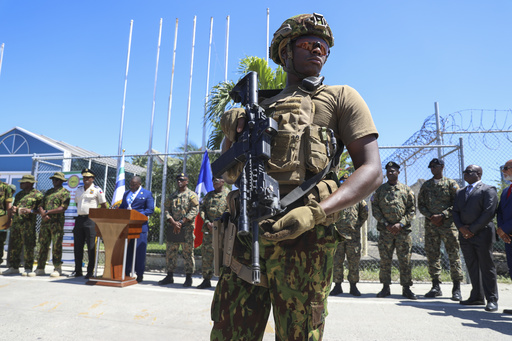
Through this resolution, the 193 member states of the U.N. are authorized to undertake “appropriate steps to prevent the illicit trafficking and diversion of arms and related materiel in Haiti.” According to U.N. experts, there has been a concerning influx of advanced weaponry that is being funneled into the hands of gangs and criminals, with many of these arms being trafficked from the United States, primarily from Florida.
In addition, the resolution prolongs a travel ban and asset freeze on individuals listed on the U.N. sanctions blacklist for another year. In late September, the sanctions committee related to Haiti added two individuals to this list, which already included five gang leaders.
One of the newly listed individuals is Elan Luckson, who leads the Gran Grif gang. This gang was responsible for the brutal killing of at least 115 people in Pont-Sondé, located in the Artibonite region near the capital, in early October—one of Haiti’s deadliest massacres in recent memory. The other individual listed is Victor Prophane, a former Haitian parliament member accused of involvement in arms trafficking.
The power held by gangs in Haiti has surged since the assassination of President Jovenel Moïse in 2021, with estimates suggesting that gangs now control up to 80% of Port-au-Prince, spreading their influence into neighboring areas as well.
This rise in violence, marked by increased killings, rapes, and kidnappings, has prompted a violent pushback from civilian vigilante groups.
Earlier in October, the Security Council voted unanimously to extend the mandate of the Kenya-led multinational force aimed at assisting the Haitian National Police in their fight against criminal gangs.
Leaders from both Kenya and Haiti recently called upon international partners to fulfill their commitments to the U.N.-backed mission in Haiti, emphasizing the urgent need for more resources, as the mission’s budget is projected to run out in March 2025.
Kenyan President William Ruto, who met with Haiti’s Prime Minister Garry Conille in Nairobi last week, announced that Kenya plans to send an additional 600 officers next month, joining the 400 already stationed in Haiti.
Additionally, nearly 20 officers and soldiers from Jamaica are currently in Haiti, although this figure is significantly lower than the 2,500 personnel pledged by numerous countries such as Chad, Benin, Bangladesh, and Barbados for the mission.
The resolution adopted on Friday, which was co-sponsored by Ecuador and the United States, also urges the Haitian government to enhance the management of police weapons and ammunition, as well as seized arms, while also working to improve border and customs controls to combat illicit trafficking.
Moreover, the resolution extends the mandate of the panel of experts overseeing the enforcement of sanctions for another 13 months.
Ecuador’s political coordinator, Irina Barba Bustos, stated following the vote that sanctions form a critical part of the comprehensive efforts necessary to tackle the ongoing crisis in Haiti, promoting a political resolution and fostering a peaceful and prosperous future for its citizens.
The prior arms embargo was limited to “small arms, light weapons, and ammunition,” but now has been broadened to include “arms and related materiel of all types.” Bustos emphasized that this expansion of the arms embargo would strengthen efforts to combat transnational organized crime, which employs various forms of violence against civilians, particularly targeting women.
